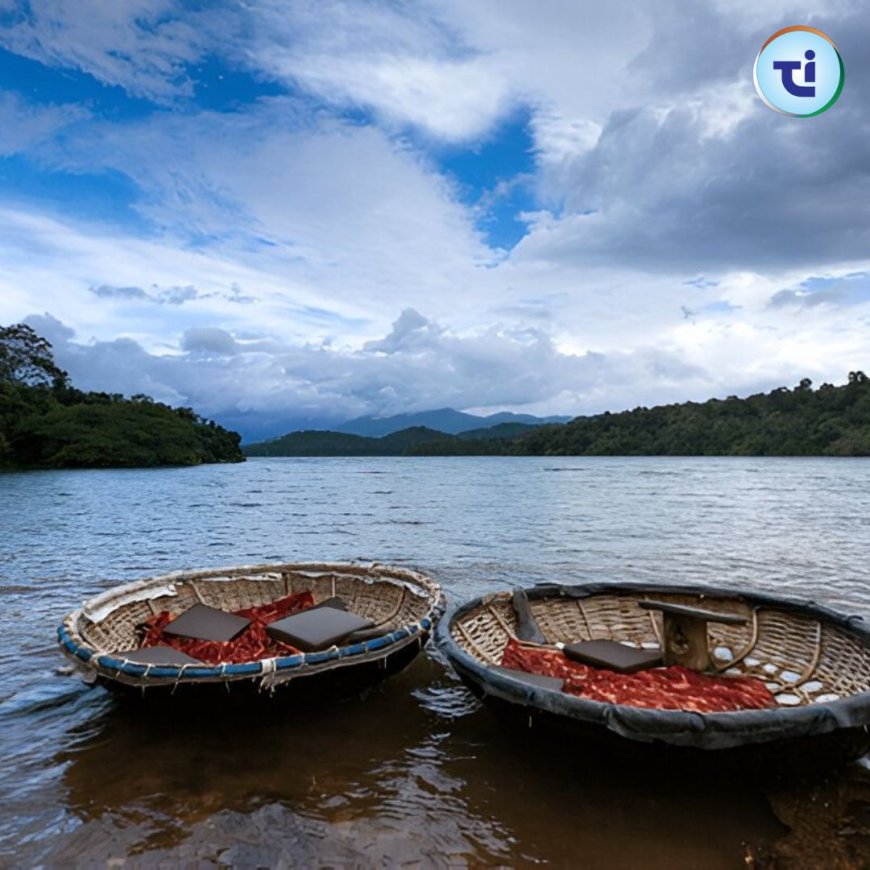Ecotourism In India
Ecotourism in India offers an immersive experience in nature through wildlife safaris, eco-lodges, and tribal village visits while promoting conservation and respect for local culture.

Ecotourism in India focuses on responsible travel to natural areas, aiming to conserve the environment and improve the livelihoods of local communities. It is not just a mode of tourismit is a movement toward sustainable travel that enriches both the traveler and the host environment. With its diverse geography, rich biodiversity, and vibrant cultural traditions, India is uniquely positioned to be a global leader in ecotourism. The concept promotes an immersive travel experience that minimizes ecological impact while uplifting local communities and protecting indigenous cultures and wildlife.
? Understanding Ecotourism in the Indian Context
Ecotourism in India involves visiting pristine natural areas with the intention of conserving the environment, respecting local traditions, and ensuring that the economic benefits of tourism are shared with local populations. Unlike mass tourism, which often leads to environmental degradation and cultural dilution, ecotourism advocates for low-impact, educational, and sustainable travel.
The Indian government, along with state tourism boards and conservation organizations, has recognized the value of ecotourism and is increasingly promoting it as a strategic avenue for both conservation and economic development.
? Key Aspects of Ecotourism in India
1. Responsible Travel
Responsible travel lies at the heart of ecotourism. Travelers are encouraged to adopt eco-friendly habits such as:
-
Reducing plastic usage
-
Conserving water and energy
-
Choosing accommodations that implement sustainable practices
-
Respecting wildlife and local customs
Responsible travel in India includes supporting locally-owned lodges, using public or green transport, and avoiding any actions that harm the natural or cultural environment.
2. Community Involvement
Community participation is essential in Indian ecotourism. Many destinations involve local tribes and rural communities in providing services like guiding, homestays, craft selling, and cultural performances. This not only provides income to the locals but also empowers them to take ownership of conservation efforts.
Homestays in Ladakh, cultural tours in Nagaland, and village tourism in Sikkim are shining examples of how communities are leading sustainable travel experiences in India.
3. Conservation Focus
Ecotourism promotes environmental awareness and supports biodiversity conservation by minimizing human impact and providing economic alternatives to environmentally harmful activities. Entrance fees to parks, contributions to conservation projects, and community-run eco-lodges all serve to fund wildlife protection and habitat preservation.
4. Educational Experiences
Ecotourism also emphasizes education, offering tourists a deeper understanding of local ecosystems, wildlife behavior, cultural practices, and environmental challenges. Interpretive trails, guided nature walks, wildlife safaris, and eco-education centers in national parks allow visitors to leave not just with memories, but with awareness and knowledge.
5. Diverse Destinations
India's topography offers a wide array of ecotourism options, from coastal ecosystems to Himalayan terrains, tropical forests to arid deserts. Whether you're looking for a tiger safari, a trek through alpine meadows, or a quiet stay in a riverside village, India's ecotourism landscape has it all.
? Examples of Ecotourism Destinations in India
Here are some prominent ecotourism destinations that offer meaningful and sustainable travel experiences:
Kerala
-
Munnar: Famous for tea plantations, cloud-kissed hills, and eco-resorts.
-
Backwaters: Explore the lush lagoons of Alleppey and Kumarakom on traditional houseboats with waste management systems.
-
Periyar National Park: Offers eco-tourism programs like bamboo rafting and forest trekking with local tribal guides.
Karnataka
-
Coorg: Known for its greenery, coffee estates, and community-based nature stays.
-
Bandipur National Park: A critical tiger reserve that supports responsible safaris and conservation education.
Goa
-
Galgibaga Beach: A serene and less crowded nesting ground for Olive Ridley turtles, ideal for eco-conscious beachgoers.
Andaman Islands
-
A tropical paradise with marine conservation zones, scuba diving, and coral reef preservation initiatives.
Sundarbans National Park (West Bengal)
-
The worlds largest mangrove ecosystem and home to the elusive Royal Bengal Tiger. Community-led boat tours and conservation programs are available.
Mawlynnong, Meghalaya
-
Dubbed the cleanest village in Asia, it offers tourists a glimpse of community-driven cleanliness and sustainability.
Kaziranga National Park (Assam)
-
A UNESCO World Heritage Site, famed for its one-horned rhinoceroses and extensive efforts in wildlife conservation.
Valley of Flowers National Park (Uttarakhand)
-
A floral wonderland with over 500 species of wildflowers, this park is a UNESCO site and ideal for botanists and nature lovers.
Ranthambore National Park (Rajasthan)
-
Known for its majestic tigers and rich biodiversity, the park offers eco-lodges and responsible safari options.
Kanha National Park (Madhya Pradesh)
-
A model for eco-tourism with buffer zones managed by local communities and guided safaris promoting conservation awareness.
Ladakh
-
Offers responsible trekking, traditional homestays, and cultural immersion in high-altitude villages, all while maintaining environmental integrity.
Himachal Pradesh
-
Villages like Tirthan and Spiti Valley promote responsible tourism with minimal infrastructure and local involvement.
Uttarakhand
-
Home to nature-based activities like trekking, camping, and birdwatching in areas like Ranikhet, Chopta, and Nanda Devi Biosphere Reserve.
? Challenges in Promoting Ecotourism
Despite its potential, ecotourism in India faces several hurdles:
-
Lack of awareness among tourists and service providers
-
Poor infrastructure in remote destinations
-
Balancing tourism demand with environmental limits
-
Need for proper regulation and certification to prevent greenwashing
-
Climate change impacts, affecting fragile ecosystems
Addressing these challenges requires strong partnerships between governments, NGOs, private stakeholders, and local communities. Proper policy frameworks, incentives, and capacity-building are crucial for making ecotourism truly impactful.
? Opportunities and the Road Ahead
The growing global emphasis on sustainable travel is creating significant opportunities for India. With its rich ecological and cultural assets, India can become a preferred ecotourism destination for conscious travelers. Key areas of growth include:
-
Digital platforms promoting certified eco-destinations
-
Skill development for community members as eco-guides and hosts
-
Partnerships with international conservation bodies
-
Integration of technology for eco-friendly transport and waste management
With rising awareness and demand, Indias ecotourism market is expected to grow steadily, attracting both domestic and international travelers who seek immersive and ethical travel experiences.
? Conclusion: A Greener Future Through Ecotourism
Ecotourism in India is more than a travel trendit is a commitment to safeguarding nature, celebrating culture, and sharing prosperity. From the backwaters of Kerala to the Himalayas of Ladakh, India offers countless ways to explore its natural beauty responsibly.
By adopting eco-friendly practices, respecting local traditions, and empowering communities, ecotourism has the power to transform tourism into a tool for conservation and inclusive development. As travelers become more mindful, and as communities and policymakers continue to innovate, India is well on its way to becoming a global leader in sustainable travel.
So, the next time you pack your bags, choose a destination that doesnt just give you memoriesbut gives back to nature and society too.



























